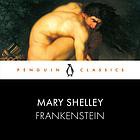Court reviewed Frankenstein or the Modern Prometheus by Mary Shelley
surprisingly enjoyable!
5 stars
I thought this was going to be a more detailed version of the pop culture bit we always see: "it's alive!" etc. but that action doesn't even take place "on screen"; the story is much more about what a creator (parent, or god) owes those they create. I enjoyed it much more than I expected, and thought the writing was excellent.
I thought this was going to be a more detailed version of the pop culture bit we always see: "it's alive!" etc. but that action doesn't even take place "on screen"; the story is much more about what a creator (parent, or god) owes those they create. I enjoyed it much more than I expected, and thought the writing was excellent.




